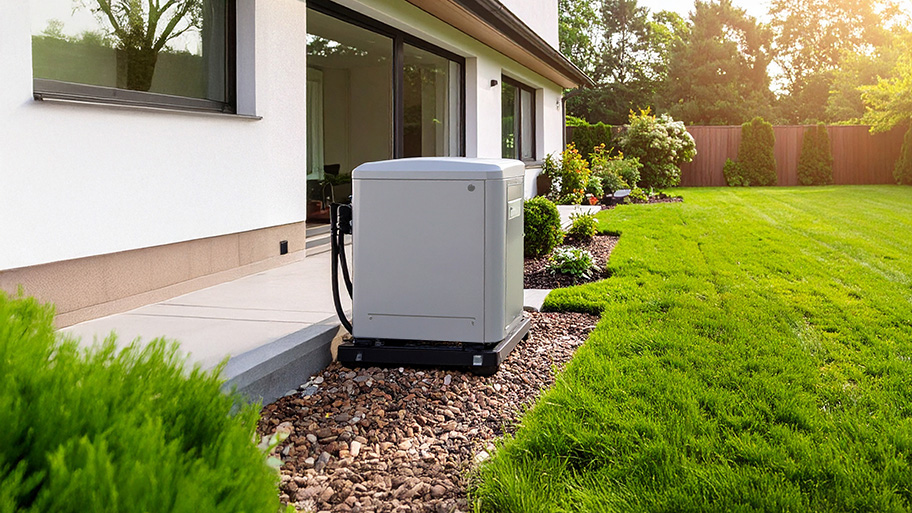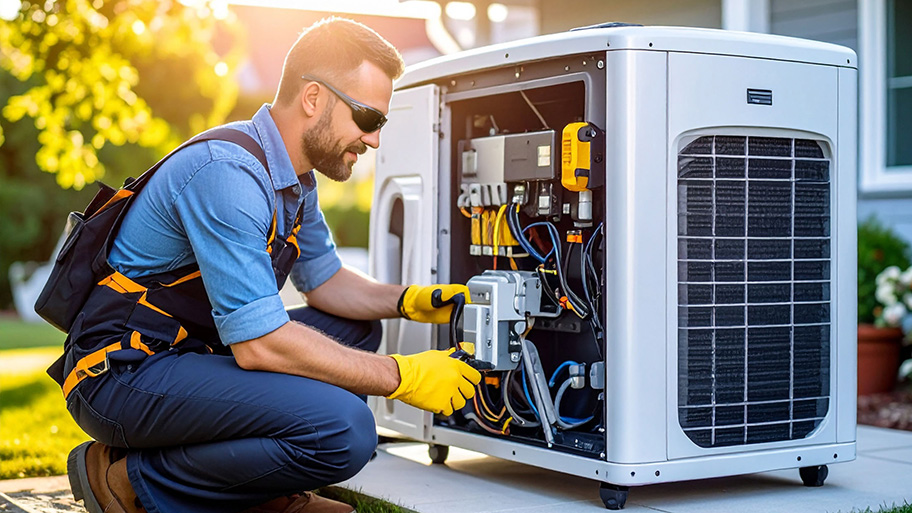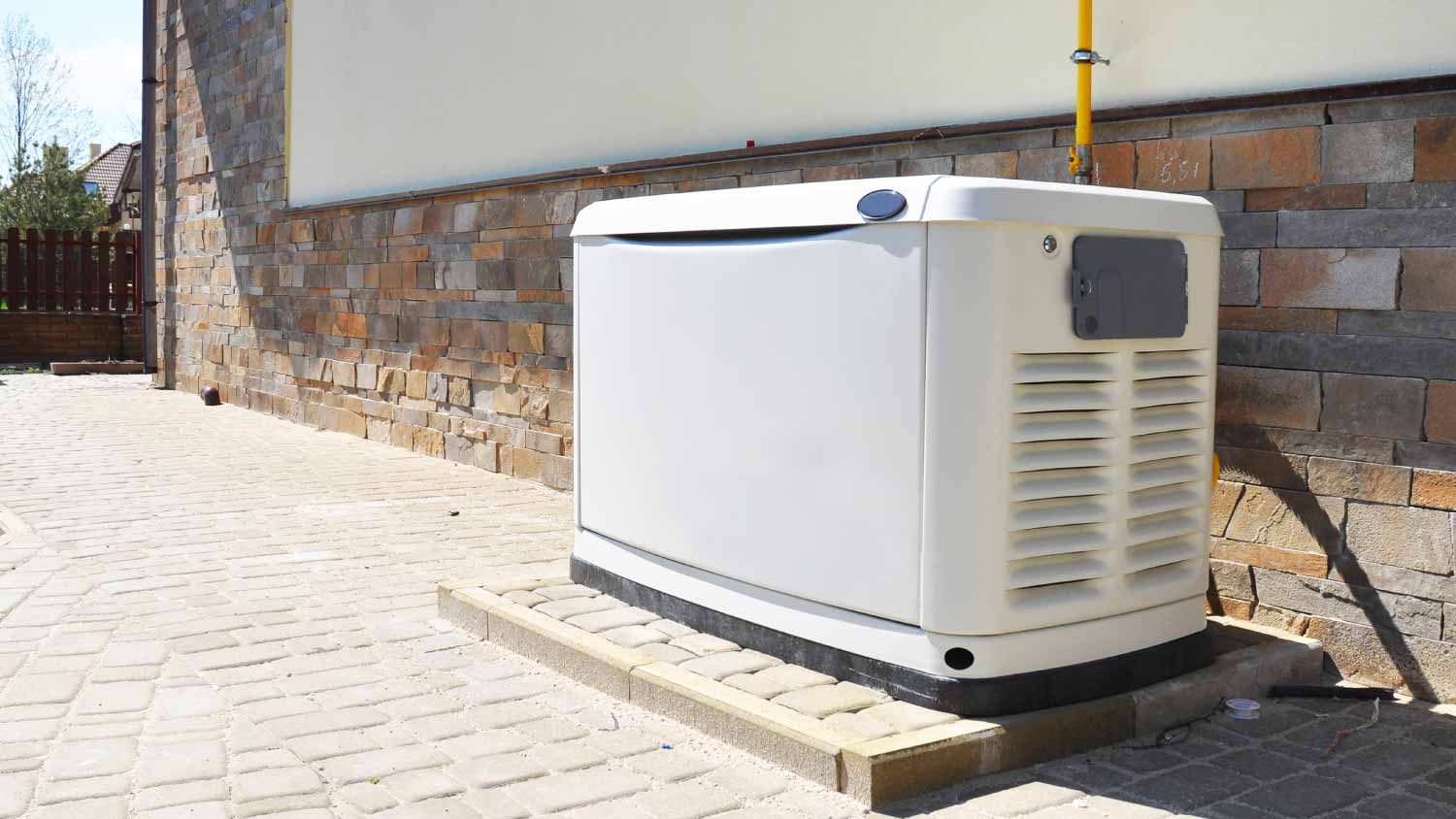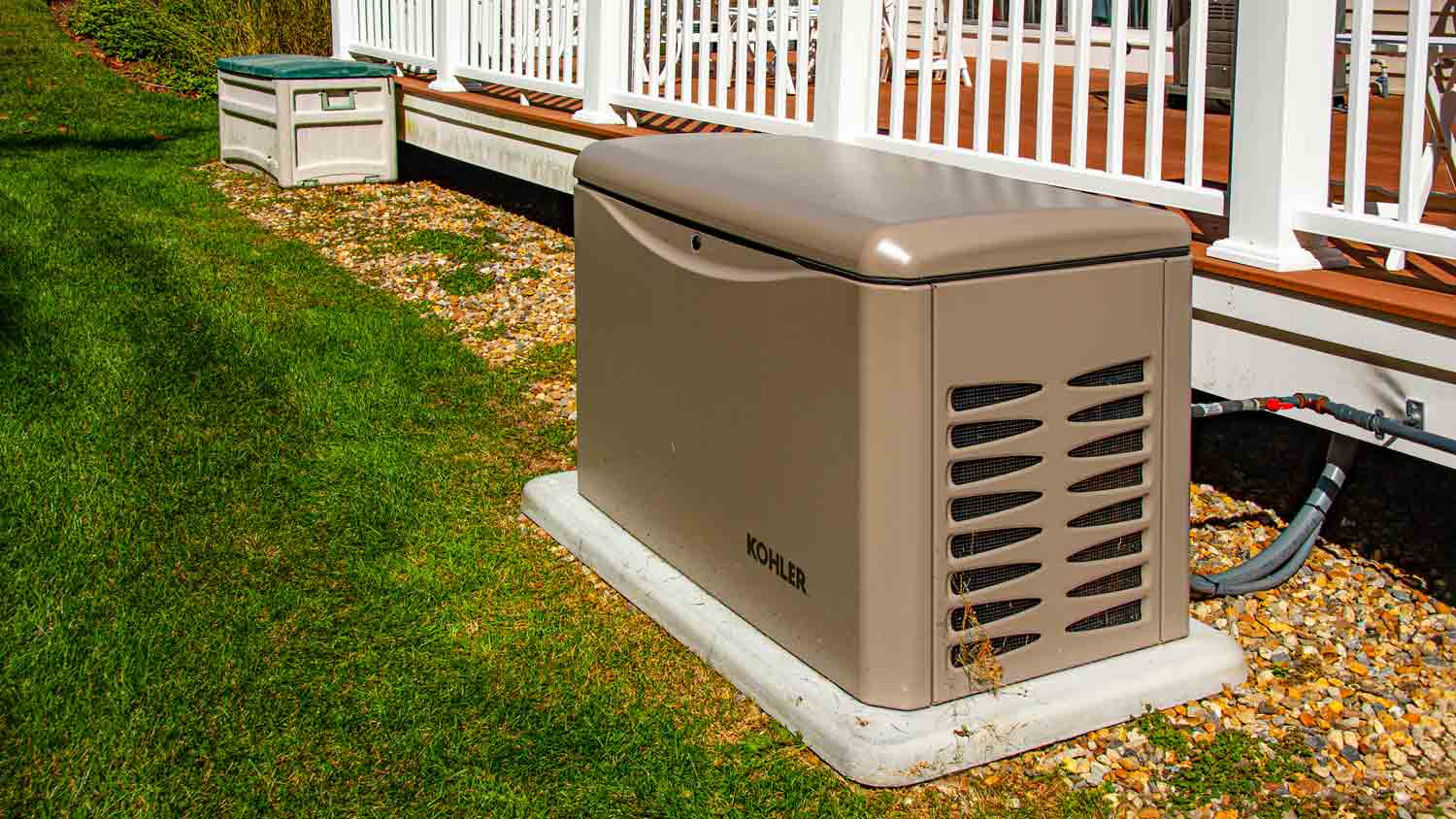
The average cost of a whole-house generator falls between $5,000 and $25,000. Keep reading to learn how much you can expect to spend.
No power? No problem


If your area is prone to extreme weather and power outages, you likely are wondering how to use a generator to power your house. Nothing beats a great back-up system for storms or blackouts. You can install a small portable generator for running basic appliances or one with the capability to connect to your whole house.
Keep in mind that generator installation is complicated and comes with safety risks, so it’s best to hire a generator installer for this task. Here’s everything you need to know to power your house using a generator.
For a worry-free power backup, leave generator fixes and installations to generator professionals who have the skills, tools, and knowledge required to handle these complex systems.
Having a reliable auxiliary power source in the event of an electrical emergency is a game changer. A back-up generator will allow your household to continue charging devices, cook, and heat your home during a power outage. Most importantly, a generator can help you stay safe for longer if a weather event disrupts your local power grid and can help you stay in touch with relatives and emergency personnel.
Follow these guidelines for installing and using your generator correctly.
In order to connect a generator to your house, you will need to evaluate your power needs and decide what type of generator you need. A simple set-up with a portable generator and extension cords will be enough to power devices and some appliances, but if you want to power whole house systems, you will need to hire an electrician to install a transfer switch or a standby generator. This step is required because these systems require a steady power source to function correctly. To determine what type of generator is best, you’ll need to decide what systems you want to power and their total wattage.

There are a few ways to estimate the size of your generator based on the needs of your home. It’s always recommended to round up when you’re figuring out the size generator that you’ll need. Here are a few simple ways to calculate your home’s wattage.
Estimate based on the peak wattage hours in a year’s worth of electric bills
Estimate based on the square footage of your home, around 1Kw per 240 square feet
Check the labels on all of your household appliances and add them together
If you have a generator with a transfer switch, it will power any circuit that's attached. A standby generator will automatically kick in and power your whole house including well pumps, HVAC systems, and sump pumps. These systems can get damaged if there is insufficient wattage caused by a generator that is too small, so it’s important to get a correct estimate of your power needs before you hook up your generator.
To connect your generator to your home electric system, you should use a genset cord. These are large gauge cables specifically designed to plug into a power inlet attached to your transfer switch. To connect individual appliances to your portable generator, use a high-quality, grounded extension cord. Using an undersized cord can pose a fire hazard and won’t supply adequate power to your appliances.
It’s important to properly ground your generator if you are powering your whole house with a generator using a transfer switch. If you use extension cords, you should not use a grounding rod. If you decide to install a generator transfer switch, make sure to consult with your electrician about the proper gauge for grounding your generator.
A generator should sit outdoors with ample ventilation, but still located close enough to your home so that wiring for it doesn’t need to run long distance. Homeowners with a transfer switch might opt to install the power inlet outside the house nearby where the circuit breaker box is indoors. This placement can be outside a garage or near a basement entrance. Placement for a standby generator will depend on its size and should be chosen in consultation with your electrician.
If you’re installing a portable generator, its installation and maintenance qualifies as a DIY project. You’ll need extension cords and a supply of your preferred fuel. A portable generator typically costs between $500 and $2,500.
However, other generator types will require hiring a local generator installer to make installations or repairs safely. Installing a transfer switch must be handled by a qualified electrician or generator installer, although once it’s installed you will be able to safely connect and disconnect your portable generator yourself. Hiring an electrician to install a transfer switch will cost between $200 and $400 and usually takes one day.
A standby generator that will automatically kick in if the power goes out will also need to be installed by a professional generator installer. Installation should cost between $6,000 and $11,000, including the price of the generator and labor.
From average costs to expert advice, get all the answers you need to get your job done.

The average cost of a whole-house generator falls between $5,000 and $25,000. Keep reading to learn how much you can expect to spend.

The cost to install a generator transfer switch depends on several factors. Our guide will help you understand all of the costs.

Keeping on top of generator maintenance and repairs gives you extra peace of mind as a homeowner. Find out how much regular generator maintenance costs.

Whole home generator installations require a professional hand. Read this guide to help you decide which generator is best for your home.

Generators are a home essential when a power outage strikes. Compare home standby generators vs backup battery systems to find the best one for you.

The type of generator and its fuel source can make the difference between whether it provides temporary relief of long-term comfort. Find out how long a whole house generator can run continuously.